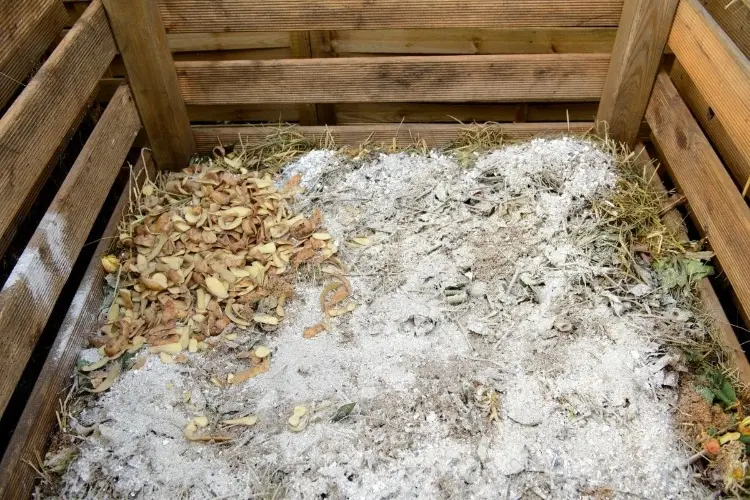In our family we have a barbecue every weekend in the summer and we all like to sit around the fire bowl every cool evening. My father-in-law once asked himself whether we should put the ashes on compost or perhaps fertilize the vegetable patch directly with them. I promised him that I would research the topic and also share with you what I found out about wood ash.
Can ashes end up on compost?
First of all, ashes are not always the same. If untreated natural materials such as wood, straw or plant material are burned, the ash can be used for compost or in the garden. Briquettes, coal and other treated materials contain pollutants and have no place in the compost heap.
In addition, one should be able to distinguish between the different types of ashes. The ash from hardwood species is more nutritious than the ash from softwood species. The two types should therefore be dosed accordingly to prevent over-fertilization.
In case of doubt: Dispose of the ashes instead of using them. Because treated wood often contains toxins that cannot be broken down during composting. They can damage ornamental plants and get into the fruits of useful plants.
Composting wood ash: In these cases it makes sense
The ash from untreated wood contains the same nutrients as dolomite rock. In addition to this, it is rich in potassium and phosphorus and is alkaline. The fertilization should therefore be tailored to the needs of the garden plants and take into account the composition of the garden soil.
So before you shake them onto the compost heap, it’s best to have the garden soil tested in a lab. Adding burned wood to the compost makes sense in the following cases:
With a low basic level of potassium in the soil. This is often the case with nutrient-rich soils with a high sand content. The potassium content is also significantly lower in peat soil than in normal garden soil. In light soils, the micronutrient is often leached by spring rainfall, while heavy soils have higher levels of potassium on average. Potassium deficiency can also occur in the vegetable garden that has been planted year after year with heavy consumers such as potatoes, pumpkins and tomatoes. In this case, regular incorporation of compost with wood ash is a preventive measure. For potted plants – in pots, window boxes and tubs the soil is already low in nutrients in midsummer. This is because watering and rainfall wash away the nutrients in the soil. Whenever there are signs of potassium deficiency in the garden. The damage caused by the deficiency can be recognized quickly and easily: the edges of the plant leaves are dry, the fruits taste watery, the plants are less resistant to heat and frost than usual, are weakened and often become ill.
When the soil pH is in the acidic range and needs to be raised. You can test the soil with litmus paper. Even with normal, permeable garden soil, you can compost wood ash without hesitation.
Do not use ash as fertilizer in these cases
There are of course exceptions – in some cases adding ash to the compost heap is not recommended.
For example, if the soil analysis shows that the potassium levels are sufficient. Or if you want to use the compost to fertilize plants that prefer acidic soil. Such are, for example, blueberries, rhododendrons and azaleas. Compost with ash must not be used when sowing. Ash is rich in nitrogen, an important nutrient for plants, but one that can inhibit seed germination. Ash can therefore only be used for young plants that have already sprouted and have formed at least two pairs of leaves.
Incorporate wood ash in the compost
Basically, working small amounts of ash into the compost heap from time to time can have a positive effect on the garden plants and the soil. So don’t overdo it – regular disposal of barbecue ashes on the compost is out of the question.
The wood ash should be evenly distributed over the compost, ideally directly over the green waste. Plant residues and lawn clippings are well suited for this purpose. For example, you can mow the lawn first at the weekend, dispose of the clippings on compost and then work in the wood ash. This allows it to release the nutrients faster. The ashes should be cooled down first, otherwise there is a risk of fire. It is best to store the wood ash in a metal bucket for 2 days first and only then compost it.
Can you put ashes in the worm box?
There is currently no scientific evidence that ash in vermicompost is beneficial or harmful. However, it is effective against certain mites and is often added to sand baths by pig farmers. One could therefore assume that it can cause damage in the worm box. Therefore, most hobby gardeners do without it and use rock flour instead.
